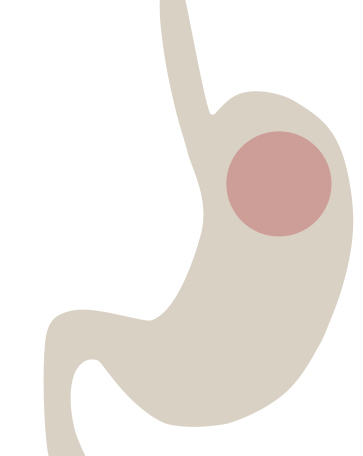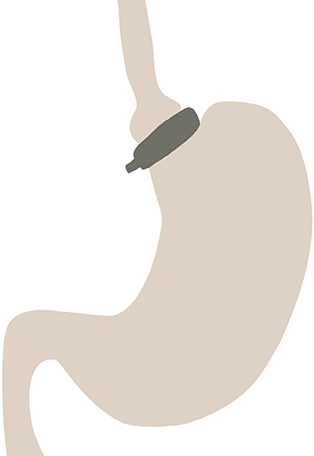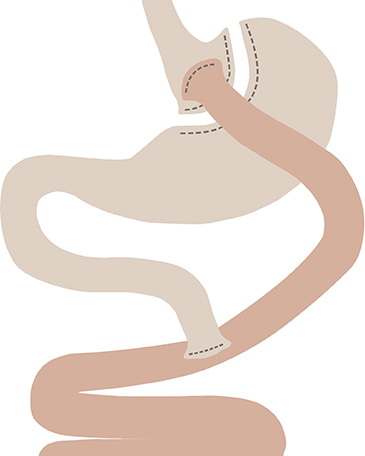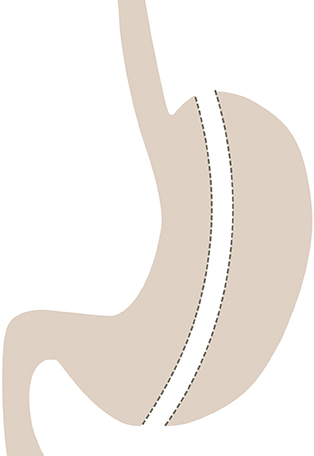Weight loss surgery: Know your options
- Overview
No one arrives at the decision to have bariatric surgery lightly.
Choosing the type of bariatric surgery that’s right for you can make all the difference when it comes to results. Your Consultant will work with you to choose the right surgery for your circumstances. The four options below make up around 90% of all bariatric procedures in the UK.

Gastric balloon
Gastric balloons are a temporary and minimally invasive option for bariatric surgery.
Who is it for?
This option is for those who need to lose less weight than other bariatric patients. Your BMI needs to be at least 28. Gastric balloons are often used to help patients lose weight for other vital procedures or to kick-start weight-loss results that can be difficult to achieve with dieting. After the weight loss with the balloon you’ll be in a better position to maintain it on your own after the balloon is removed.
How is it done?
The deflated balloon is placed during an endoscopy (camera examination of the stomach). The balloon is inflated with fluid via a thin catheter that passes through your mouth and oesophagus, and is detached after the balloon is inflated. You'll be given medication and an oral spray to make the swallowing process more comfortable. The balloon remains for six months before being deflated and removed via the mouth, during a second endoscopy examination.
How will it change my life?
For the six months the balloon is in your stomach you will need to follow a strict diet plan. The balloon will make you feel full more easily and so overeating can cause a number of side-effects including reflux.

Gastric band (lap banding)
Gastric banding is a more permanent solution that can be adjusted to suit lifestyle changes down the track.
Who is it for?
You need to have a BMI of 40+ (35+ with other weight-related conditions) to be eligible for a gastric band. This option is attractive to those who may need to make adjustments in the future. The band can be deflated or loosened during pregnancy or after you’ve had sufficient long-term success and can show that you’ve developed healthier eating habits.
This flexibility of the band does mean that the results are more variable. People with gastric bands have to be highly disciplined to be successful.
How is it done?
A band with an inflatable inner cuff is surgically fitted just below the entrance to your stomach, restricting the flow of food and making you feel full sooner. The introduction of a foreign object inside your body does however mean that there are some band-specific complications, such as slippage or deterioration of the band, which can occasionally occur
How will it change my life?
Weight loss is slower and more gradual with a band. You’ll need to follow a strict diet plan. Gastric banding can be very successful but like all bariatric procedures, the outcomes depend on the continued commitment of the patient. The ability to adjust the band is an attractive option for some but it needs to be for the right reasons.

Gastric bypass
A bypass is the most established of the more complex laparoscopic bariatric procedures.
Who is it for?
A gastric bypass is a more substantial procedure. Patients who opt for this type of surgery are usually severely obese with a BMI of over 35 or 40 many with other weight-related conditions such as diabetes. The operation is particularly effective in addressing some of these other conditions.
How is it done?
Much of the stomach is stapled off creating a smaller stomach “pouch” in which to ingest food. The small bowel is then reattached to the new pouch bypassing the majority of the stomach and upper intestine. However none of the stomach is actually removed.
How will it change my life?
A gastric bypass is a life-long commitment. It changes the way your intestines process food and nutrients. You’ll need to follow nutritional advice and take supplements for the rest of your life. Eating the wrong foods can lead to ‘dumping syndrome’ and may cause nausea, vomiting and diarrhoea and low sugar levels.

Sleeve gastrectomy
Sleeve gastrectomy is the newest of the more common laparoscopic procedures in bariatric surgery and is now becoming the most popular type of bariatric procedure in the UK.
Who is it for?
A gastric sleeve is an irreversible procedure for people with a BMI of 40+ (35 with weight-related conditions).
How is it done?
Much of the stomach is stapled off and removed, leaving the patient with a narrow tube, or sleeve for a stomach instead of the normal large expandable stomach.
How will it change my life?
Your relationship with food will be altered forever. The areas of the stomach responsible for hunger and appetite are removed so you’ll only be able to eat a small amount and will have to follow a strict diet plan. However, food follows the normal digestive route so there are fewer absorption issues than are experienced with a bypass.
Mr Simon Dexter, Consultant Bariatric Surgeon works at our Nuffield Health Leeds Hospital.
Last updated Wednesday 27 November 2019
First published on Thursday 4 February 2016


